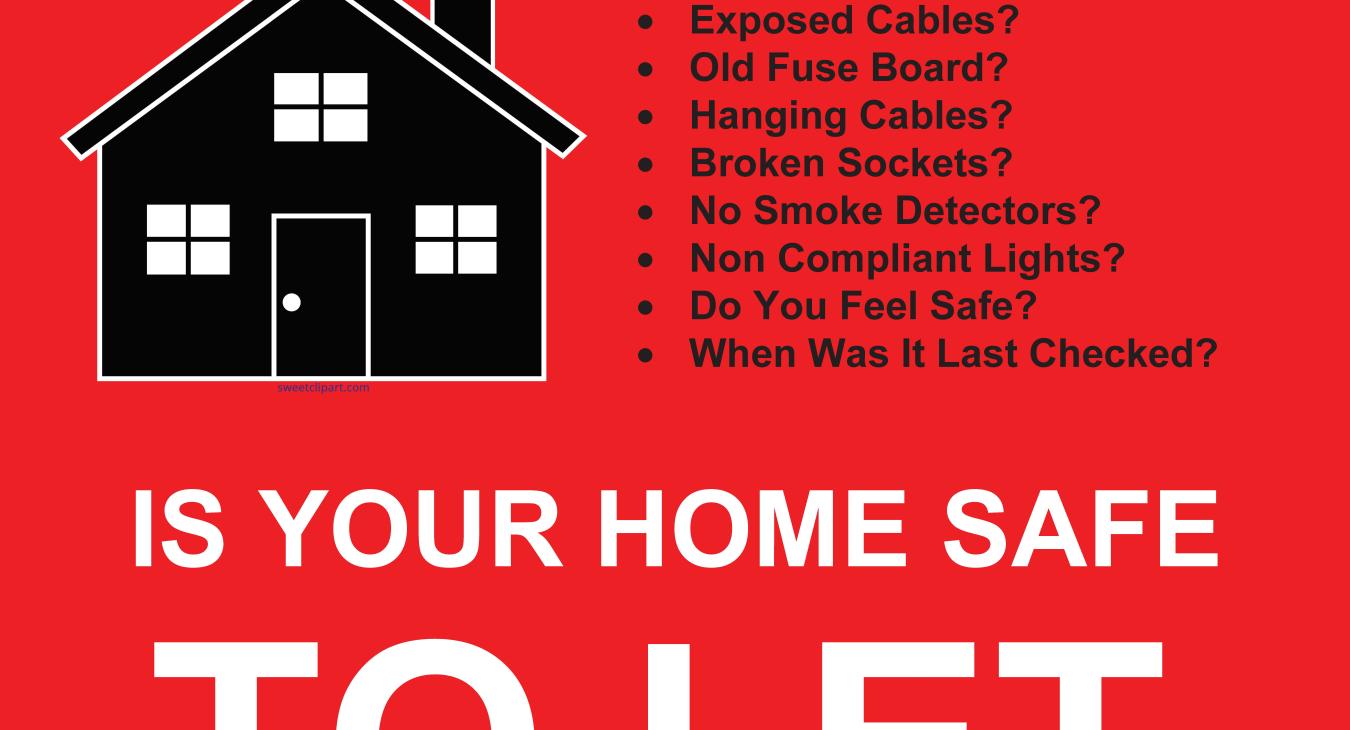
New Regulations For Electrical Checks In Rental Properties
Mandatory Electrical Inspections on Rented Properties
The draft of The Electrical Safety Standards in the Private Rented Sector (England) Regulations 2020 has been laid in Parliament. The regulations require a resolution of each house, so this will not be an immediate approval, but should be soon – it looks like the intention is for the new regulations to be in force from 1st April 2020.
From the draft, there will be a requirement on private landlords (except for specified exceptions) to ensure that an electrical safety check is done before the commencement of the tenancy (for all new tenancies after the regulations are in force), and for every existing tenancy, by 1st April 2021. Then electrical safety checks are to be done no more than every 5 years thereafter.
There is a constant obligation on the private landlord to “ensure that the electrical safety standards are met during any period when the residential premises are occupied under a specified tenancy”.
The check must result in a report giving the results and the date of the next inspection, and this must be supplied to the tenant within 28 days. If the Local Authority request a copy it must be provided within 7 days. Copies must also be provided to prospective tenants on request, and to new tenants before taking occupation.
Any remedial works must be done within 28 days, or whatever shorter period specified in the report (with written confirmation of work done).
Now, enforcement…
Enforcement is by the Local Authority, by ordering remedial action or urgent remedial action. The penalty for breach of such an order is a ‘civil penalty’ (as per Housing Act 2004 and Housing and Planning Act 2016) of up to £30,000.
But this ‘up to £30,000 penalty’ also applies to any duty under regulation 3. So the Local Authority can levy a penalty on the landlord for failing to provide the tenant or prospective tenant with an electrical safety certificate at the required times. (There is the usual appeals process for such penalties, and a way to appeal remedial action and urgent remedial action notices.)
Part 6 of the regulations adds a new condition to mandatory or additional or selective licenses (via Schedule 4 Housing Act 2004) to the effect that:
(c) Where the house is in England, additionally—
(i) To ensure that every electrical installation in the house is in proper working order and safe for continued use; and
(ii) To supply the authority, on demand, with a declaration by him as to the safety of such installations;
Breach of condition of a licence under s.95 Housing Act 2004 is a Rent Repayment Order offence, so I think (on a first look) – as things stand – that a tenant’s application for a rent repayment order may be possible where the property is subject to licensing, but not otherwise. If that is the case, I’d suggest it doesn’t make an awful lot of sense to restrict possible RROs in this way.
Otherwise, I don’t think the tenant has much recourse (or compensation) beyond a complaint to the Local Authority – save, of course that an unsafe electrical installation will fall under s.9A, and possibly s.11, Landlord and Tenant Act 1985.
Some tenancies are excluded from the new regulations – private register providers of social housing, lodgers, tenant sharing accommodation with landlord’s family, long leases, student halls of residence, hostels and refuges, cares homes, hospitals and hospices, and other NHS provided accommodation.
- Log in to post comments
